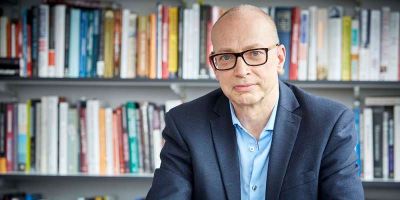Dr Wiegratz discusses his new research outputs in Uganda
Dr Jörg Wiegratz has appeared on Ugandan TV to discuss fraud in Uganda and his new book based on extensive research, Neoliberal Moral Economy: Capitalism, Socio-Cultural Change and Fraud in Uganda.
Jörg also gave public presentations and held discussions with academics and development practitioners including NGO representatives, amongst other at the Centre for Basic Research, Makerere University’s School of Women and Gender Studies and the Economic Policy Research Centre.
In the interview with NTV’s Head of News, Maurice Mugisha, Jörg discusses his inspiration for the book and its core messages in an attempt to contribute to the answering of the question: What explains the rise in economic fraud in so many societies around the world?
Reflecting on previous research on Global Value Chains Jörg points to the stories about trickery in international trade where for instance "exporters in Uganda would tell us that importers in Europe would cheat them by inventing quality problems to reduce price".
This has led to Jörg’s subsequent research, where he argues and evidences empirically that the current global age of fraud is an outcome of not only political-economic but also moral transformations that have taken place in societies reshaped by neoliberalism. Accordingly, neoliberal moral restructuring deeply affects how people think and go about earning a living and treat others with whom they do business. Using the case of Uganda, his book explores the rise and operation of the neoliberal moral economy and its world of hard and fraudulent practices.
In the talk, Jörg highlights the changes in the Ugandan economy triggered by the neoliberal reforms and related changes in regulation and ideology in the 1990s and 2000s and how the economy is now structured in a way that is fraud conducive rather than fraud inhibiting. But fraud is not just a significant issue in Uganda, but across the global economy: “Economic crime is now part of the core of the global economy, it’s not just on the periphery. It would be difficult to find a sector that is fraud-free.” Jörg’s ongoing research explores the political economy of anti-fraud measures in Uganda.




